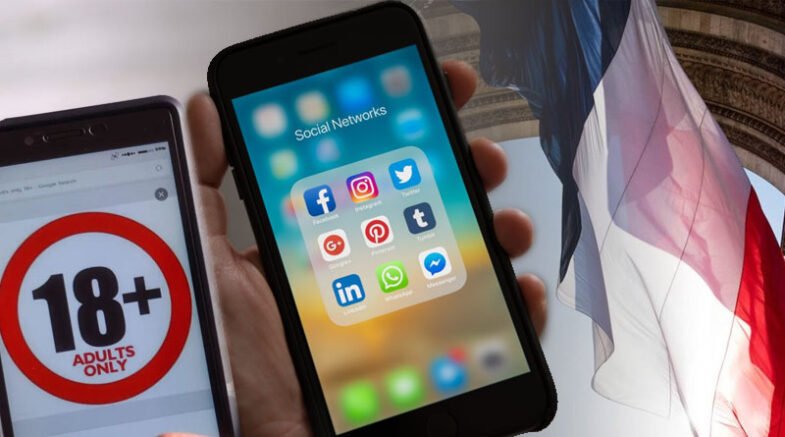In France, social media platforms like Facebook & TikTok will be required to verify their users’ ages and obtain parental permission for anyone under the age of 15.

The implementation of age verification and parental permission for social media platforms and pornographic websites is getting closer in France. The National Assembly passed the legislation on March 2nd with a huge majority; the Senate now has to approve it and sign it into law.
In France, social media platforms like Facebook and TikTok, as well as adult websites, will be required to verify their users’ ages and obtain parental permission for anyone under the age of 15. Additionally, if their children are under 15, parents will have the authority to delete their social media accounts.
Although in theory parental control is a good idea, tech companies will find it difficult to implement reliable verification techniques.
Due to the requirement for personal data tracking and biometric technology, the new law may also result in data protection and privacy issues. Similar worries about the implementation of porn ID laws are being voiced in Louisiana and other US states.
Since 2020, when it made porn sites deny access to minors, France has been working on age verification for online transactions. Since the law doesn’t specify how to implement age verification, tech companies are concerned about technical solutions and online privacy regulation as the government works to expand that legislation to all social media platforms.
France is testing a double anonymity system in March 2023, which requires users to verify their age or digital identity on a third-party site or platform.
Double anonymity sounds like a good attempt at privacy protection, but the proposed legislation doesn’t mention exact implementation criteria or how data should be handled. Each tech company is supposed to take its own measures to comply with the law, which is likely to incur some costs.
However, we’re talking about personal information that can be abused for data harvesting or cybercriminal activity like phishing, so the matter can’t be left to anyone’s discretion.
The French Junior Minister for Children stated that facial recognition and credit cards could be used for age verification. This raises some serious privacy and security concerns, since current facial recognition technology can be heavily misused and abused.
Under the guise of protecting children, politicians in France, the UK, and the US are calling for more regulation of online and digital technology. Although the EU’s GDPR was a positive step, lawmakers are now constantly attempting to limit and regulate online access.
Particularly France appears to be on a roll, as they are currently putting forth legislation to limit children’s screen time and forbid parents from sharing images of their kids if they meet certain nebulous criteria.
The internet should be free, and protecting children isn’t a bad thing, but age verification laws ignore technical hurdles and place responsibility in the hands of private entities.
These laws are more confusing and easily avoidable than helpful, and they place your digital identity at risk of being stolen. To avoid giving personal information or credit card data to third party regulatory agencies or websites, use a VPN to change your IP address to a different country.
